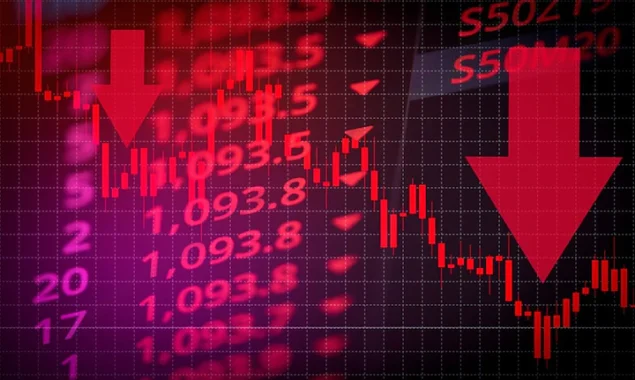The supermarket rows you don’t usually hear about
Costs are rising at once-in-a-generation rate throughout the whole food supply chain....

Is the worst over for markets? No one can say. (credits: Google)
Few investors will have had a more difficult start to a year than the recent six-month period. While inexperienced traders, accustomed to 2021’s eye-popping rallies, were dealt a harrowing reality check, professionals were defeated.
What’s happening: Between January and June, the S&P 500 fell 20.6 percent, marking its worst start since 1970. The Nasdaq Composite experienced its worst percentage decrease ever, and the Dow experienced its biggest first-half decline since 1962.
Stock prices have fallen as a result of a bad set of conditions. Concerns about how forceful central banks like the Federal Reserve will need to be to contain inflation have increased due to Russia’s war in Ukraine. Fears of a recession this year or next have increased as a result. Lockdowns on the coronavirus in China, the second-largest economy in the world, have also increased anxiety.
It is particularly difficult to predict what will happen in the markets during the next six months. The Fed has promised to advance one month at a time, so the road ahead remains hazardous.
According to Markus Schomer, chief economist at PineBridge Investments, inflation is the primary concern at the moment. “How the Fed reacts to it is the only thing that matters,” the speaker said.
Optimists think that most of the bad news has already been included into current prices. Schomer pointed out that the core Personal Consumption Expenditures price index, a frequently studied inflation indicator by the Fed that excludes volatile food and energy prices, rose by 4.7 percent year-over-year in May, down from 4.9 percent in April.
Schomer stated, “I think the picture is starting to come together. “Disruptions to supply chains are disappearing everywhere. Although they are not yet declining, commodity prices are also not increasing as quickly. The price of oil only needs to remain at $100 [per barrel] for inflation to decrease.”
Of course, given the status of the energy markets, that is a significant “if.” Monitoring is also necessary for inflation that is more persistent, such as rising rent and housing costs.
But Schomer believes that when investors come to recognise that things aren’t as awful as they initially believed and place their bets on the Fed’s ability to reduce inflation without starting a recession, stock market sentiment will likely improve in the second half of the year.
As we process this information, I believe the market will stabilise in the second half, he added. He believes stock markets will end the year higher than where they are now.
Others continue to doubt that the worst is over. Goldman Sachs strategists warned clients on Thursday that stocks could continue to decline later in the year because “equities are pricing only a moderate recession” and more businesses will probably start cutting their earnings projections.
The S&P 500 would fall to 3,600 in the event of a recession, or 4.9 percent below Thursday’s finish.
Everyone is in agreement that things will remain bumpy for a while and that having an iron stomach will be essential. The Fed’s task remains challenging, and there is a significant risk that it may raise borrowing prices excessively to the point where they seriously hamper consumer or business spending and reverse growth.
Markets are expected to remain erratic until the growth/inflation mix improves as investors alternate between irritation with inflation and concern with the recession, according to Goldman’s strategists.
Catch all the Business News, Breaking News Event and Latest News Updates on The BOL News
Download The BOL News App to get the Daily News Update & Follow us on Google News.